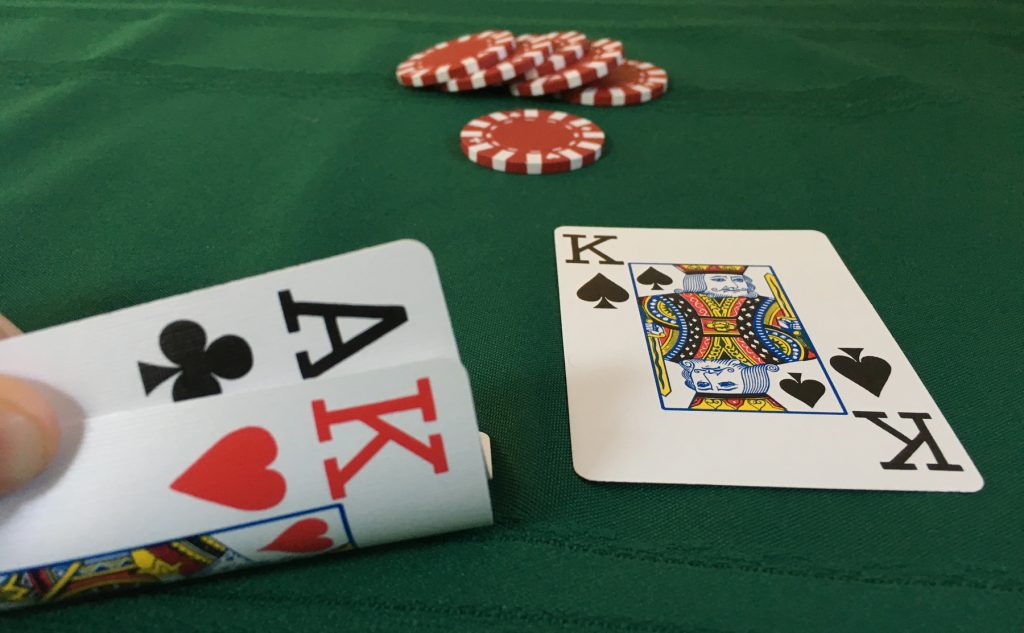
Mastering the Basics: Your First Steps in Stud Poker
Stud poker, a game rich with tradition and challenge, stands as a pillar in the pantheon of card games. This classic poker variant, often seen as a purer form of the game, requires patience, skill, and strategy. For those new to the poker table, Stud can seem daunting, but with the right guidance, the complexities of the game unfold into an engaging strategic battleground. This beginner’s guide is your first step into the intricate world of Stud Poker, providing you with the foundational knowledge to start your journey from novice to master.
Understanding the Structure of Stud Poker
The Basics: Game Setup and Starting Play
Stud Poker is typically played with up to eight players at the table. The game begins with everyone paying an ante, which is a small bet that ensures the pot has value right from the start. Players are then dealt a mix of face-down and face-up cards, known as ‘hole’ cards and ‘door’ cards respectively. The number of cards and betting rounds depends on the variant of Stud being played.
The Betting Rounds
Stud Poker involves multiple betting rounds, with each round followed by the dealing of an additional card. After each card is dealt, a round of betting ensues where players can fold, call, or raise. Betting rounds in Stud are typically referred to as ‘streets’, with the third card dealt known as ‘third street’, the fourth as ‘fourth street’, and so on, culminating in the ‘river’ or final round of betting.
The Showdown
After the final round of betting, remaining players reveal their hands in a showdown. The player with the best five-card hand wins the pot. In Stud Poker, the ability to read opponents and predict which hands they are trying to build is crucial. Now that we’ve outlined the structure, let’s dive deeper into the gameplay mechanics and strategies.
The Dynamics of Stud Poker: Gameplay Mechanics
Starting Hands and Door Cards
Your starting hands in Stud Poker are pivotal. Good starting hands typically include three of a kind, three suited cards, or three sequential cards, which can potentially develop into a flush or straight. Your door cards (face-up cards) are equally significant. They provide insight into the potential strength of your hand and give you a strategic advantage in bluffing or deducing opponents’ hands.
Playing the Streets
As the streets progress, so should your strategy. By fourth street, you should have a clear idea of the direction of your hand. Watch how the community’s hands develop and adjust your bets accordingly. If your hand hasn’t improved by fifth street, it may be wise to fold unless you’re reading weakness in your opponents.
Strategic Stud: Developing Your Game Plan
Betting and Bluffing
Betting in Stud Poker isn’t just about the strength of your hand; it’s also about the perceived strength of your hand. Bluffing becomes a powerful tool when used correctly. Knowing when to bluff and when to fold is critical, as the multiple betting rounds can quickly inflate the pot.
Reading Opponents and Tells
One of the most exciting aspects of Stud Poker is the psychological play. Learning to read your opponents and pick up on ‘tells’, involuntary reactions that may indicate the strength of a hand, can give you a substantial edge. Sharp observation and mental notes of their betting patterns can turn the tides in your favor.

Advanced Tactics in Stud Poker
Memory and the Art of Attention
A key skill in Stud Poker is memory. Remembering which cards have been folded and which are still in play can greatly influence your strategy. This level of attention to detail can dictate your decision-making in later streets and is an attribute that separates the amateurs from the pros.
Managing Your Bankroll
Stud Poker can be a game of swings, and managing your bankroll is essential. Wise bettors only risk a small percentage of their bankroll on any given hand, ensuring that they stay in the game long enough to catch a winning streak. Over-betting on a single hand can lead to a quick exit from the game table.
Closing Thoughts: Practicing Patience and Perseverance
Continuous Learning and Adaptation
As with any complex game, the path to becoming adept at Stud Poker is paved with continuous learning and adaptation. Each hand dealt is an opportunity to refine your strategy and decision-making. Remember, even the most seasoned players were once beginners. With patience and perseverance, the intricacies of Stud Poker will become second nature, and you’ll find yourself not just playing, but evolving with every card dealt and every pot won.
